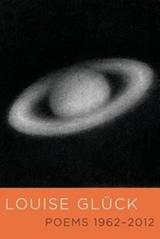 American poet Louise Glück, "whose searing, deeply personal work, often filtered through themes of classical mythology, religion and the natural world, won her practically every honor available," including the 2020 Nobel Prize for Literature, died October 13 at age 80, the New York Times reported. Glück began publishing in the 1960s but her reputation grew in the 1980s and early 1990s with several works, including Triumph of Achilles (1985), winner of the National Book Critics Circle Award; Ararat (1990); and The Wild Iris (1992), which won the Pulitzer Prize. She served as the U.S. poet laureate from 2003 to 2004. In 2016, President Barack Obama presented her with the National Humanities Medal.
American poet Louise Glück, "whose searing, deeply personal work, often filtered through themes of classical mythology, religion and the natural world, won her practically every honor available," including the 2020 Nobel Prize for Literature, died October 13 at age 80, the New York Times reported. Glück began publishing in the 1960s but her reputation grew in the 1980s and early 1990s with several works, including Triumph of Achilles (1985), winner of the National Book Critics Circle Award; Ararat (1990); and The Wild Iris (1992), which won the Pulitzer Prize. She served as the U.S. poet laureate from 2003 to 2004. In 2016, President Barack Obama presented her with the National Humanities Medal.
Her early work, especially her debut, Firstborn (1968), "is deeply indebted to the so-called confessional poets who dominated the scene in the 1950s and '60s," the Times wrote, noting that her poetry was "both deeply personal--Ararat, for example, drew on the pain she experienced over the death of her father--and broadly accessible, both to critics, who praised her clarity and precise lyricism, and to the broader reading public.... But even as Ms. Glück continued to weave her verse with an autobiographical thread, there is nothing solipsistic in her later, more mature work, even as she explored intimate themes of trauma and heartbreak."
When an extended bout of writer's block followed publication of her first collection, Glück began her teaching career, first at Goddard College in Vermont and later at Williams College, Yale, and Stanford. She went on to publish 14 books of poetry, including Poems: 1962-2012 (2012), a complete compendium of her published poetry at the time. "Today it is considered required reading by any aspiring poet--and, arguably, anyone serious about modern American literature," the Times noted.
Glück won the National Book Award for Poetry in 2014, for Faithful and Virtuous Night. Earlier volumes--The Wild Iris, Vita Nova (1999), and Averno (2006)--were finalists for the NBA, while The Seven Ages (2001) was a finalist for the Pulitzer. She received the Bollingen Prize from Yale in 2001. She also wrote two collections of essays and, in 2022, Marigold and Rose: A Fiction.
Farrar, Straus & Giroux, Glück's publisher, paid tribute to the poet in a Facebook post, quoting Jonathan Galassi, FSG's chairman and executive editor: "Louise Glück's poetry gives voice to our untrusting but unstillable need for knowledge and connection in an often unreliable world. Her work is immortal."
FSG also shared these lines from Glück's poem "Faithful and Virtuous Night":
I think here I will leave you. It has come to seem
there is no perfect ending.
Indeed, there are infinite endings.

